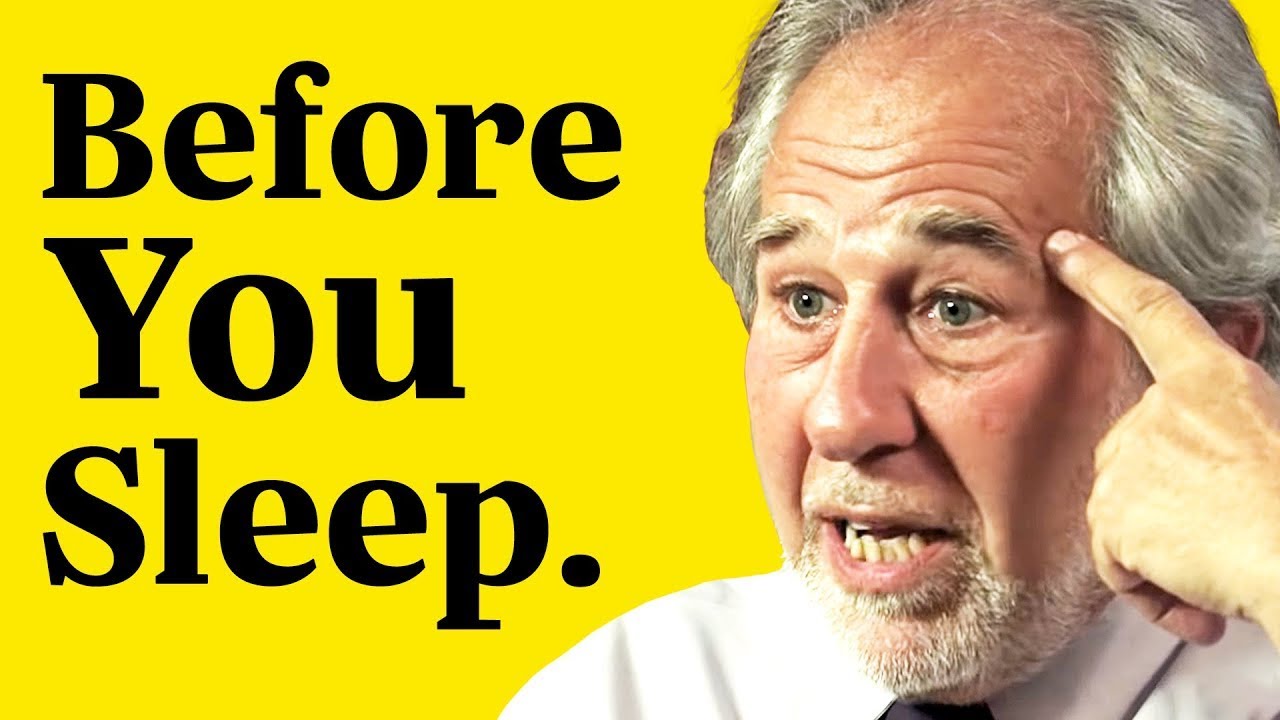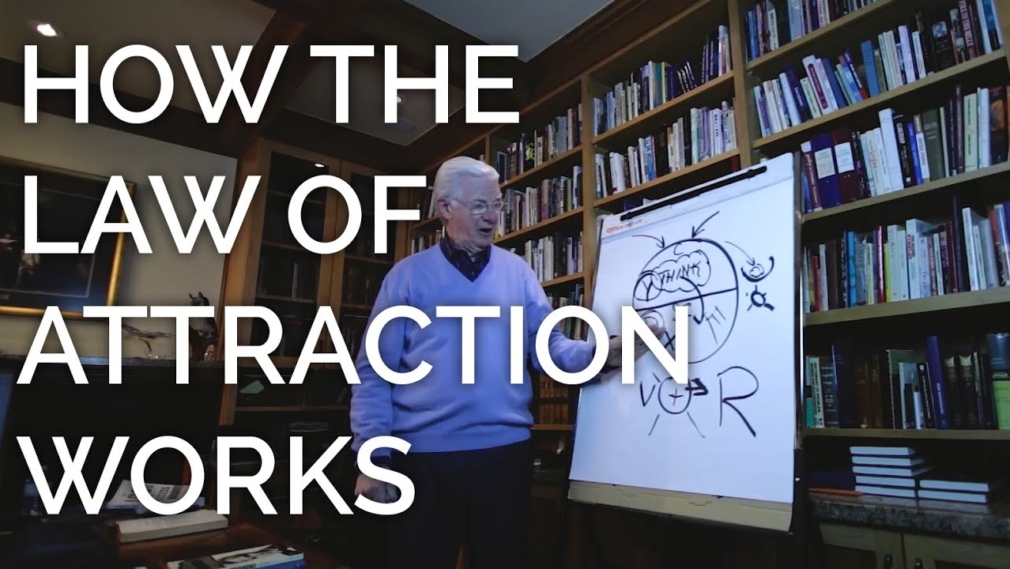218Views 0Comments
Reprogramming the Subconscious Mind: Unlocking Your True Potential

Many people live a life they have been programmed to live rather than the life they truly want. Our subconscious minds drive our day-to-day behaviors, often sabotaging the quality of our lives. In this blog post, we will explore the concept of subconscious programming, its impact on our lives, and methods to reprogram the subconscious mind for personal growth and fulfillment.
Understanding Subconscious Programming
Subconscious programming plays a significant role in shaping our beliefs and behaviors. It begins in the first seven years of life when we observe and download behaviors from the influential people around us. During this crucial period, our conscious mind, which is responsible for creativity and thinking, is still developing, while the subconscious mind takes the lead.
The subconscious mind operates like an autopilot, executing actions based on programmed behaviors without conscious thought. Surprisingly, approximately 95% of our behavior stems from the subconscious mind, leaving only about 5% to be influenced by our conscious mind.
Identifying these subconscious programs can be challenging because we are not consciously aware of them. However, others can observe these programs in our behavior, reflecting their deep-seated influence on us. It is important to understand that our programming doesn’t only start after birth but can be influenced even before we are born.
Throughout childhood, our subconscious mind continues to absorb and assimilate programming from various sources, which include our caregivers, family members, teachers, and surroundings. These experiences create the foundation for our beliefs, values, and behaviors, shaping who we become as adults.
When it comes to subconscious programming, it is crucial to recognize the impact it has on our lives. Many of our automatic responses, habits, and patterns of thinking are a result of this programming. By becoming more aware of these subconscious programs, we can gain a better understanding of ourselves and begin to make conscious changes.
One way to uncover subconscious programming is through introspection and self-reflection. By paying attention to our thoughts, emotions, and repetitive behaviors, we can begin to identify the patterns that shape our actions. It can also be helpful to seek feedback from others who may have a different perspective on our behavior.
Reprogramming the subconscious mind involves replacing limiting beliefs and negative behaviors with more positive and empowering ones. This can be achieved through various techniques such as affirmations, visualization, or working with a therapist or coach who specializes in subconscious programming.
It’s important to recognize that changing subconscious programming takes time and consistency. Just as it took years for these programs to become deeply embedded within us, it will require patience and persistence to create new, more beneficial patterns of thinking and behaving.
In conclusion, subconscious programming is a powerful force that influences the majority of our thoughts, actions, and behaviors. Recognizing the existence of these programs and taking steps to understand and reprogram them can lead to personal growth and transformation. By doing so, we can begin to align our conscious and subconscious minds, enabling us to live more authentically and purposefully.

Challenging the Status Quo
Changing subconscious programs can be a daunting task. Unlike the conscious mind, which is easily influenced and changed through awareness and knowledge, the subconscious mind operates on a different level. It is where our deep-seated beliefs, habits, and emotions reside.
However, it is important to recognize that we have the power to influence and control our genetic activity through a field of study known as epigenetics. This groundbreaking science reveals that genes do not determine our destiny; rather, our lifestyle choices and environment can activate or deactivate certain genes.
Many people often believe that illnesses and diseases are solely determined by their genes. This way of thinking can lead to a victim mentality and disempowerment. However, the truth is that our genes are not the sole cause of diseases. It is the interaction between our genes, lifestyle, and environment that ultimately determines our health outcomes.
Epigenetics teaches us that our lifestyle choices, such as our diet, exercise habits, stress levels, and even our thoughts, can impact the expression of our genes. By making conscious choices that promote health and well-being, we can positively influence our genetic activity and reduce the risk of developing certain diseases.
For example, if someone has a family history of heart disease, they may be genetically predisposed to this condition. However, by adopting a heart-healthy lifestyle, such as eating a balanced diet, engaging in regular physical activity, managing stress, and avoiding smoking, they can significantly reduce their risk of developing heart disease.
Unfortunately, many individuals are unaware of their ability to influence their genes. This lack of knowledge can perpetuate a sense of helplessness and disempowerment, leading people to believe that their genetic makeup solely determines their health.
As medical practitioners, it is our responsibility to empower our patients and provide them with the knowledge that they have control over their health. By educating them about epigenetics and the impact of lifestyle choices on genetic activity, we can motivate them to make positive changes and take charge of their well-being.
It is crucial to challenge the status quo and shift the narrative around genetics and health. Instead of viewing genes as predetermined factors, we should see them as pieces of a puzzle that can be influenced and shaped by our choices. This shift in perspective can empower individuals to take proactive steps toward improving their health and well-being.
In conclusion, changing subconscious programs and influencing genes through epigenetics is a challenging endeavor. However, it is essential to recognize the power and control we have over our genetic activity. Genes do not cause diseases; rather, our lifestyle choices and environment play a significant role in their expression. By providing individuals with the knowledge and tools to make informed decisions about their health, we can challenge the status quo and empower them to take control of their well-being.
Methods to Reprogram the Subconscious Mind

Reprogramming the subconscious mind can be a powerful tool for personal growth and transformation. By changing our thoughts and behaviors, we can unlock our true potential and create the life we desire. Several effective methods can help us reprogram the subconscious mind, allowing us to introduce new empowering beliefs and make positive changes in our lives.
- Self-Hypnosis Before Sleep
Hypnosis is a technique that allows us to access the subconscious mind and reprogram it with new beliefs and patterns. Self-hypnosis before sleep is a particularly effective method as it takes advantage of the mind’s natural state during the transition from wakefulness to sleep.
To practice self-hypnosis :
- Find a quiet and comfortable space where you can relax.
- Start by focusing on your breathing and allowing your body to unwind.
- Visualize yourself entering a state of deep relaxation.
Once you feel relaxed, begin to repeat positive affirmations or suggestions that you wish to program into your subconscious mind. For example, if you want to build self-confidence, you can repeat statements like “I am confident and capable” or “I believe in myself.”
As you repeat these affirmations, imagine them sinking into your subconscious mind and becoming deeply ingrained. Allow yourself to truly feel the emotions and sensations associated with the desired belief or behavior.
Continue the self-hypnosis practice for a few minutes or until you feel ready to fall asleep. By practicing self-hypnosis before sleep consistently, you can reprogram your subconscious mind and reinforce positive beliefs and behaviors over time.
The Power of Self-Love and Compassion
Self-love is a fundamental aspect of our well-being and has a profound impact on the way we navigate through life. It is the foundation for accepting love from others and avoiding self-sabotage. When we practice self-love, we cultivate a deep sense of self-worth and learn to prioritize our own needs and happiness.
But self-love goes beyond simply taking care of ourselves. It is also about recognizing and acknowledging the value of others. Just as we desire to be seen and appreciated, so do the people around us. By extending kindness and recognition to others, we create a positive and supportive environment that fosters connection and growth.
The Power of Resonance
Have you ever noticed that when you are happy and content, you tend to attract positive people and experiences into your life? This phenomenon is known as the power of resonance. According to the law of attraction, vibrations of similar frequencies attract each other. When we prioritize self-love and happiness, we emit a positive energy that resonates with others who are vibrating at a similar frequency.
By cultivating self-love and practicing happiness, we not only invite positivity into our own lives but also have the potential to create a ripple effect in the lives of others. When we radiate joy and contentment, those around us are inspired to do the same. It becomes a chain reaction of happiness and fulfillment that spreads far beyond our immediate circle.
Practicing Self-Reflection and Reframing
To develop and strengthen self-love, it is important to engage in self-reflection. Taking the time to understand our thoughts, feelings, and motivations allows us to become more aware of ourselves and our needs. Through self-reflection, we can identify any negative beliefs or patterns that hinder our self-love and work towards dismantling them.
Another powerful tool for cultivating self-love is reframing. Often, we tend to focus on our flaws and shortcomings, which can lead to self-doubt and diminished self-esteem. By deliberately shifting our perspective and focusing on our strengths and accomplishments, we can reframe the way we see ourselves and develop a more positive and compassionate self-image.
Breaking Negative Thought Patterns

Choice plays a significant role in breaking negative thought patterns. Our thoughts have a powerful impact on our emotions, behaviors, and overall well-being. When we find ourselves stuck in negative thought patterns, it can feel like an endless loop that drains our energy and prevents us from living a fulfilled life. However, by understanding the power of choice, we can break free from these patterns and create a more positive mindset.
One of the first steps in breaking negative thought patterns is to stop the negative thoughts in their tracks. This requires awareness and mindfulness. When we catch ourselves engaging in negative thinking, we have the power to choose a different thought or focus our attention on something positive. It may not be easy at first, but with practice, it becomes more natural and empowering.
In addition to stopping negative thoughts, we must also choose to do something else. Negative thoughts often arise when we are idle or not engaged in activities that bring us joy and fulfillment. By consciously choosing to engage in activities that align with our values and bring us happiness, we can interrupt the cycle of negative thinking. This could be anything from going for a walk, practicing a hobby, spending time with loved ones, or even doing something as simple as listening to uplifting music.
Another important aspect of breaking negative thought patterns is being mindful of how we use our energy. Negative thoughts can consume a significant amount of mental and emotional energy, leaving us feeling drained and incapable of focusing on the positive aspects of life. By being intentional with our energy and not wasting it on things that don’t bring us any positive change, we can redirect our focus toward more productive and fulfilling pursuits.
Self-awareness is also key to breaking negative thought patterns. We must question the thoughts and beliefs we hold, as they may not be truly ours but a reflection of what we have consumed from our environment. By critically examining our thoughts and beliefs, we can gain a deeper understanding of ourselves and our triggers for negative thinking. This self-awareness allows us to challenge and transform the negative thought patterns that no longer serve us.
It’s essential to recognize that negative thought patterns can also impact our relationships. When we are constantly immersed in negative thinking, it can create a downward spiral that affects how we interact with others. These unconscious patterns can lead to misunderstandings, resentment, and, ultimately, the deterioration of relationships. Therefore, it is crucial to observe and address these dysfunctional patterns in order to maintain healthy and fulfilling connections with others.
In conclusion, breaking negative thought patterns begins with the power of choice. By stopping negative thoughts and consciously choosing a different focus, we can interrupt the cycle and create a more positive mindset. Being mindful of how we use our energy, questioning our thoughts and beliefs, and addressing dysfunctional patterns are all key steps toward breaking free from the grip of negativity. By practicing these strategies, we can cultivate a more positive and empowering way of thinking, which will lead to a happier and more fulfilled life.
Reprogramming for Personal and Planetary Transformation
Reprogramming the subconscious mind is not only beneficial for personal growth but also for the planet. Human behavior is causing the rapid loss of species on Earth, and addressing personal behavior is crucial to prevent further damage. Energy psychology, a new form of psychology, can help change behavior quickly. It engages the super learning process to reprogram subconscious patterns in a short amount of time.
Our subconscious mind is a powerful force that influences our thoughts, feelings, and actions. It holds deep-rooted beliefs and patterns that shape our behaviors. These patterns are often formed during childhood and continue to affect us throughout our lives. While some patterns serve us well, others can be limiting or even self-destructive.
Energy psychology offers innovative techniques to reprogram these subconscious patterns and create positive change. One modality of energy psychology is Internal Family Systems (IFS), which is particularly effective in reframing traumatic experiences and rewriting scripts from childhood.
IFS works on the premise that our mind is made up of different subpersonalities or parts. Each part has specific beliefs, emotions, and behaviors. By identifying and understanding these parts, we can heal the wounded aspects of ourselves and create harmony within.
This process begins with self-awareness. By exploring our inner landscape, we can identify the parts that are causing us distress or holding us back. Once these parts are brought to light, we can begin to cultivate a relationship with them, treating them with compassion and understanding.
The next step is to reframe the traumatic experiences associated with these parts. IFS utilizes techniques such as visualization, meditation, and dialogue to help us connect with these parts and understand the root causes of their behaviors. By reframing and releasing these past traumas, we can free ourselves from their subconscious influence and create new, empowering narratives.
Repetition and habituation are essential components of reprogramming subconscious patterns. Just as our current patterns were formed through repetition and reinforcement, we can replace them with new patterns by consciously choosing and repeating new behaviors.
By engaging in daily practices that support our desired changes, such as affirmations, visualizations, and positive self-talk, we gradually form new neural pathways in our brains. These pathways strengthen with time and practice, making the new behaviors more automatic and natural.
Ultimately, reprogramming our subconscious mind benefits not only ourselves but also the planet. Our behaviors collectively contribute to the state of the world, and by changing our patterns, we can create a ripple effect of positive transformation.
Imagine a world where people are consciously aware of their actions and make choices that honor both themselves and the environment. By taking responsibility for our behaviors and reprogramming our subconscious mind, we can prevent further damage to the planet and foster a sustainable and harmonious future.
Energy psychology, with its ability to quickly reprogram subconscious patterns, is a powerful tool for personal and planetary transformation. Through practices such as IFS and the power of repetition, we can create a positive ripple effect that extends far beyond ourselves.
Conclusion
Reprogramming the subconscious mind is a powerful tool for unlocking our true potential and living a life aligned with our desires. When we understand how our subconscious mind works and how it influences our thoughts, beliefs, and behaviors, we gain the power to challenge the status quo and break free from limiting patterns that hold us back.
By utilizing various methods and techniques, we can actively reprogram our subconscious mind. This involves replacing negative or self-sabotaging thoughts with positive, empowering ones. It requires consistent effort and practice, but the results can be transformative.
One key aspect of reprogramming the subconscious mind is practicing self-love. Often, we have internalized negative beliefs about ourselves due to past experiences or societal conditioning. By cultivating self-compassion and acknowledging our worthiness, we can shift our subconscious programming towards more positive and empowering self-perceptions.
Mindfulness is another crucial element in the process of reprogramming the subconscious mind. By being present and aware of our thoughts, emotions, and triggers, we can better understand the deep-rooted beliefs and patterns that drive our behaviors. Mindfulness allows us to consciously choose new thoughts and responses, leading to personal growth and more fulfilling relationships.
Awareness of our subconscious programming also empowers us to challenge the status quo. Society often imposes limiting beliefs and expectations on us, dictating what we should pursue or how we should live. By recognizing and questioning these societal norms, we can break free from conformity and live a life aligned with our true desires. Reprogramming the subconscious mind enables us to create our paths and redefine success on our terms.
Reprogramming the subconscious mind not only benefits us on an individual level but also has the potential to contribute to personal and planetary transformation. When we align our beliefs and actions with our deepest desires and values, we become agents of positive change in the world. By embodying qualities such as compassion, empathy, and conscious decision-making, we inspire others and create a ripple effect of transformation.
It is important to remember that there is always time to change patterns and create the life we truly want. Our subconscious mind is not fixed, and with consistent effort and self-reflection, we can reprogram it to support our goals and aspirations. The journey of reprogramming the subconscious mind requires patience, perseverance, and self-compassion. It is a lifelong process of growth and self-discovery.
In conclusion, by understanding subconscious programming, challenging the status quo, practicing self-love, compassion, and mindfulness, and utilizing various methods and techniques, we can unlock our true potential and create a life that aligns with our desires. Reprogramming the subconscious mind is a powerful tool for personal and planetary transformation, contributing to a more fulfilling and purposeful existence. Let us embark on this journey of self-transformation and create the life we truly want.

